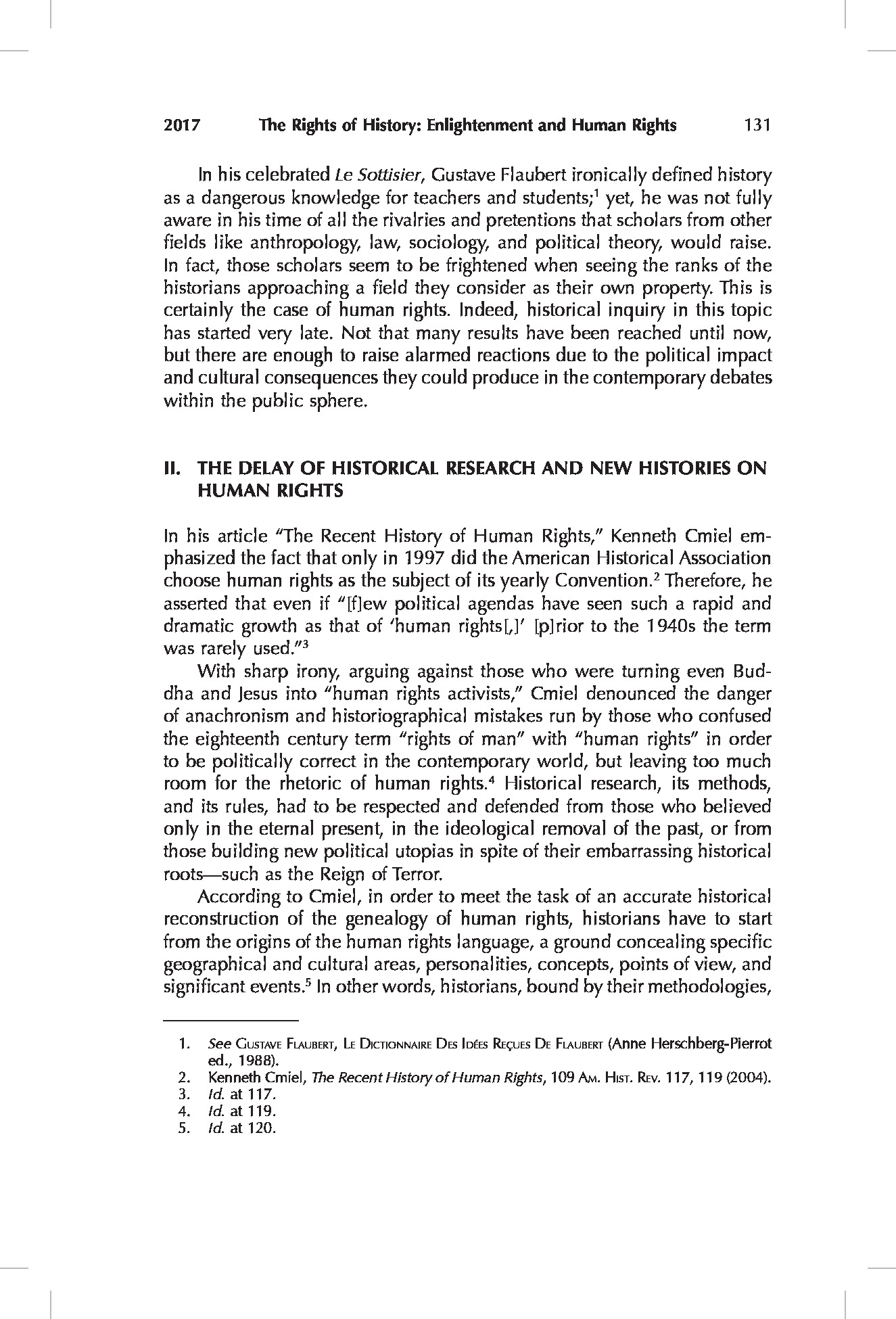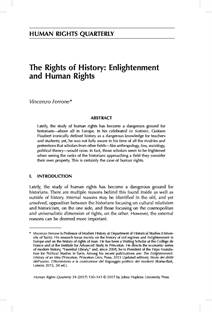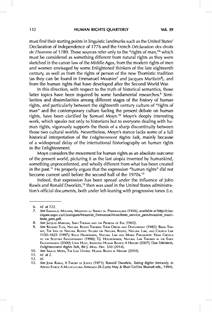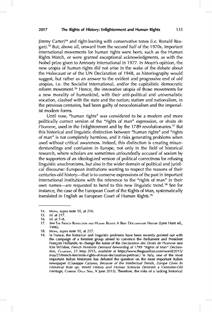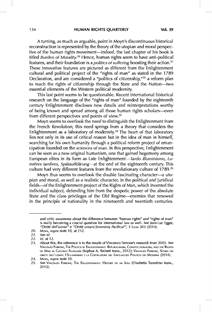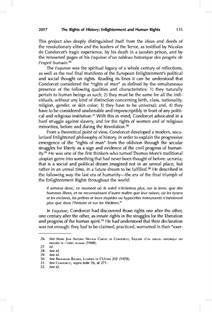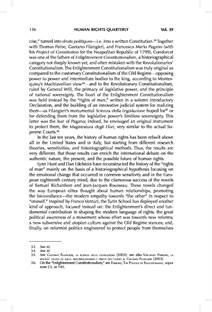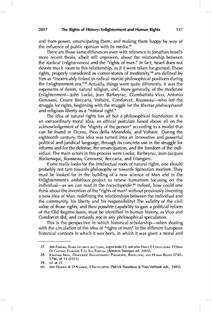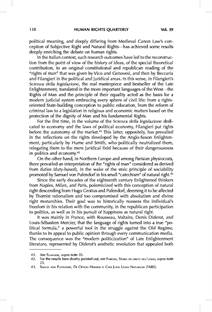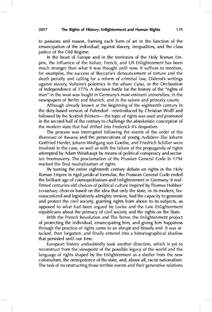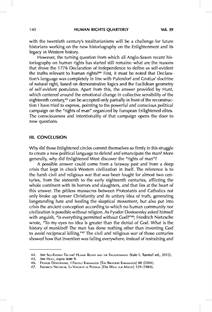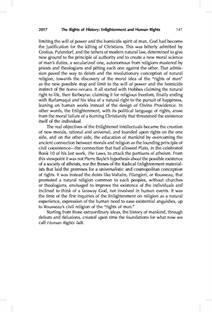2017
The Rights of History: Enlightenment and Human Rights
131
In his celebrated Le Sottisier, Gustave Flaubert ironically defined history
1
as a dangerous knowledge for teachers and students; yet, he was not fully
aware in his time of all the rivalries and pretentions that scholars from other
fields like anthropology, law, sociology, and political theory, would raise.
In fact, those scholars seem to be frightened when seeing the ranks of the
historians approaching a field they consider as their own property. This is
certainly the case of human rights. Indeed, historical inquiry in this topic
has started very late. Not that many results have been reached until now,
but there are enough to raise alarmed reactions due to the political impact
and cultural consequences they could produce in the contemporary debates
within the public sphere.
II. THE DELAY OF HISTORICAL RESEARCH AND NEW HISTORIES ON
HUMAN RIGHTS
In his article “The Recent History of Human Rights,” Kenneth Cmiel em-
phasized the fact that only in 1997 did the American Historical Association
2
choose human rights as the subject of its yearly Convention. Therefore, he
asserted that even if “[f]ew political agendas have seen such a rapid and
dramatic growth as that of ‘human rights[,]’ [p]rior to the 1940s the term
3
was rarely used.”
With sharp irony, arguing against those who were turning even Bud-
dha and Jesus into “human rights activists,” Cmiel denounced the danger
of anachronism and historiographical mistakes run by those who confused
the eighteenth century term “rights of man” with “human rights” in order
to be politically correct in the contemporary world, but leaving too much
4
room for the rhetoric of human rights. Historical research, its methods,
and its rules, had to be respected and defended from those who believed
only in the eternal present, in the ideological removal of the past, or from
those building new political utopias in spite of their embarrassing historical
roots—such as the Reign of Terror.
According to Cmiel, in order to meet the task of an accurate historical
reconstruction of the genealogy of human rights, historians have to start
from the origins of the human rights language, a ground concealing specific
geographical and cultural areas, personalities, concepts, points of view, and
5
significant events. In other words, historians, bound by their methodologies,
1. See Gustave Flaubert, le Dictionnaire Des iDées reçues De Flaubert (Anne Herschberg-Pierrot
ed., 1988).
2. Kenneth Cmiel, The Recent History of Human Rights, 109 am. Hist. rev. 117, 119 (2004).
3. Id. at 117.
4. Id. at 119.
5. Id. at 120.
Dettagli
- Page N°:2
- Publication:
- Author:Vincenzo Ferrone

